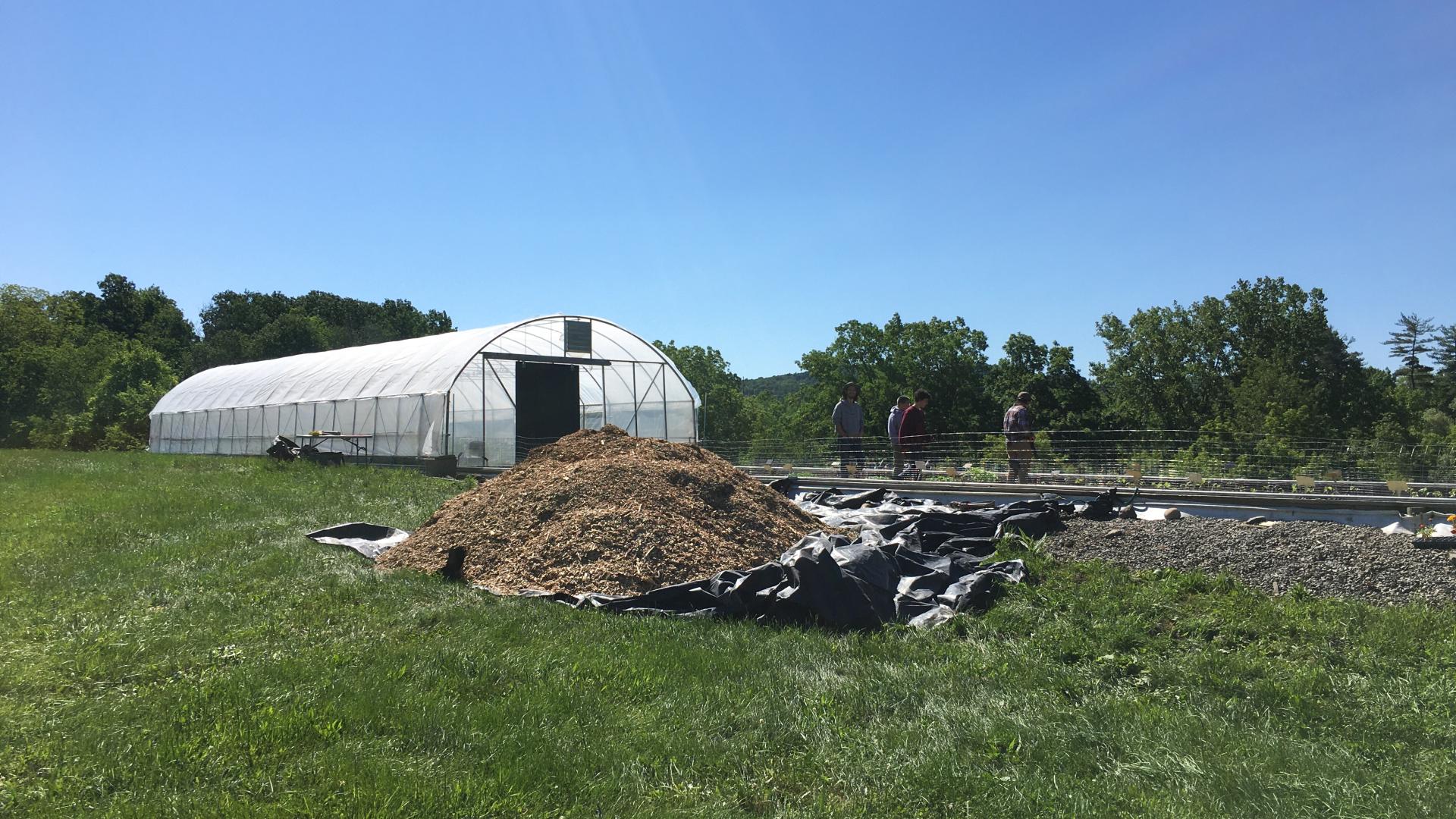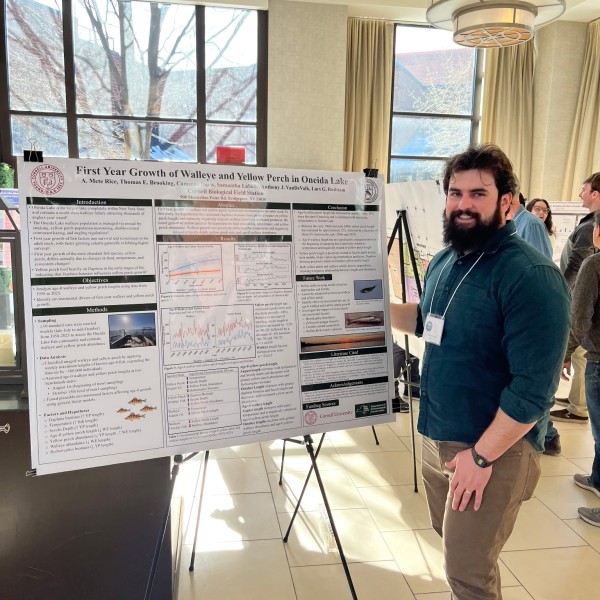As Community Food Systems minors, students engage with community-based organizations to gain rich, hands-on experiences in the food system. This narrative is a reflection of Nick Sutera ‘22’s practicum experience with Dilmun Hill Student Farm.
Dilmun Hill is a student-run farm that has been practicing sustainable agriculture on Cornell University's campus for more than a decade. It provides students with opportunities for experiential learning, group collaboration and research.
I didn’t quite know what I was getting into when I agreed to go to a soil science talk with Eli, one of the students working at Dilmun in the summer of 2021. Perhaps the fact that it was at an event called “Empire Farm Days” should have given its nature away. For some reason, I had gotten the impression that we wouldn’t be venturing very far outside of the Cornell Bubble. A professor from Cornell was giving a keynote presentation on soil, and that’s about all I knew. That, and the fact that I was a novice farmer who didn’t know much about soils. So I said yes.
As we drove down Route 13, passed through Dryden, and proceeded onto backroads I’d never seen, I began to realize that we would in fact be going quite far outside of the familiar Bubble. We approached what looked like a mass exodus of pickup trucks, turning into a wide and muddy field by the dozens. Eli’s pickup joined the many others parked in long, long rows. Then, we walked towards the sea of tents further beyond. There were giant John Deere combines that towered over us, meat-heavy food tents drawing long lines, even tents for fancy beers and Wegman’s produce.
We found our tent where the presentation was to happen, a smaller one at the far end of the sea. The tent was mostly full of people who fit the demographics and descriptions of the typical American farmer. A white male, a bit on the older side, wearing a flannel and a hat over a short head of hair. As I found a seat, with my tie-dye t-shirt, Cornell mask, and greasy pony-tail, I began to feel very out of place.
Soon the professor began to speak about the benefits of no-till to soil life, and other very interesting and important things for a novice farmer like me. But I admit I was instead paying attention mostly to a man right in front of me – a very stout, intimidating sort of man. He fit the farmer stereotype to a tee. He had on a black cap with bold white text which read “I stand for the flag, I kneel for the fallen.” And as I read his hat, I noticed something – there was a spider, crawling up from a single strand of web, dangling from the tip of his hat! It climbed up and up, well into his line of sight – but the farmer didn’t move a bit! I sat there on the edge of my seat, becoming very invested. What would he do? How could he not have noticed that thing right in front of his face? Or did he, and he just didn’t care?!
Eventually, and deliberately, he took his hand up to that single strand, caught it on a finger, and gently lowered it and its rider to the ground. He hadn’t even flinched! It shook me. I already stuck out like a sore thumb here, but this was it. Real farmers “stand for the flag,” not for spiders. But me, I would have leapt right up out of my seat. I was a suburban, Honda-Fit-driving, Ivy-League hippie in the heart of the Farmer Bubble. In this Bubble, people wear flannels and camo hats and drive those giant John Deere combines and pickup trucks and spray chemicals and eat lots of meat and drink beer and aren’t afraid of spiders because their whole job is dirt.
Then there’s Eli. I don’t think he drinks beer – he isn’t 21. He does wear flannels and drive pick-up trucks. He grew up farming. He's the handiest college-aged person that I know, and we were lucky to have him at Dilmun. And he could give you the most spot on impersonation of a cow’s moo that you’ve ever heard. He fit in well here in the Farmer Bubble, apart from the fact that he was wearing a mask and was from the Cornell Bubble, like me, and unlike everyone else. Whether he would stand for the flag or for spiders is unclear. The speaker wrapped up, and Eli nonchalantly approached. I hung back, still uneasy, still a sore thumb among presumably dirty, hard-working hands.
Of course there’s always more than meets the eye. Later, I saw this same, once-intimidating farmer walking around barefoot, and recall him saying some ecologically minded things at a cover-crop demonstration. Maybe he was actually a nature-loving hippie. Maybe that’s why the spider didn’t phase him, and all he was doing was gently returning it to the Earth. Who knows. Maybe he and Eli are exceptions to the American-farmer rule. Or maybe there was never a rule to begin with.
About the author
Nick Sutera ‘22 is a senior majoring in Environment & Sustainability, Psychology, and minoring in Community Food Systems. His interest in food and food systems began during the pandemic, when he was forced to start cooking for himself and to think more about where his food came from. He spent the first summer of the pandemic getting his first experiences with agriculture, WWOOFing on a farm near Seneca Lake. Nick's passion grew when he came back to Cornell and took classes like Agriculture, Food, Sustainability, and Social Justice. He was excited to find the CFS minor that same year, and for his practicum, he was lucky enough to be one of the four managers for the 2021 season at Dilmun Hill, Cornell’s student-run organic farm. In his time at Cornell, he was active with Climate Justice Cornell (CJC) during its fossil-fuel divestment campaign, and is now a recovery officer with Cornell Food Recovery Network (FRN).
Read the entire Community Food Systems 2022 narrative series.





